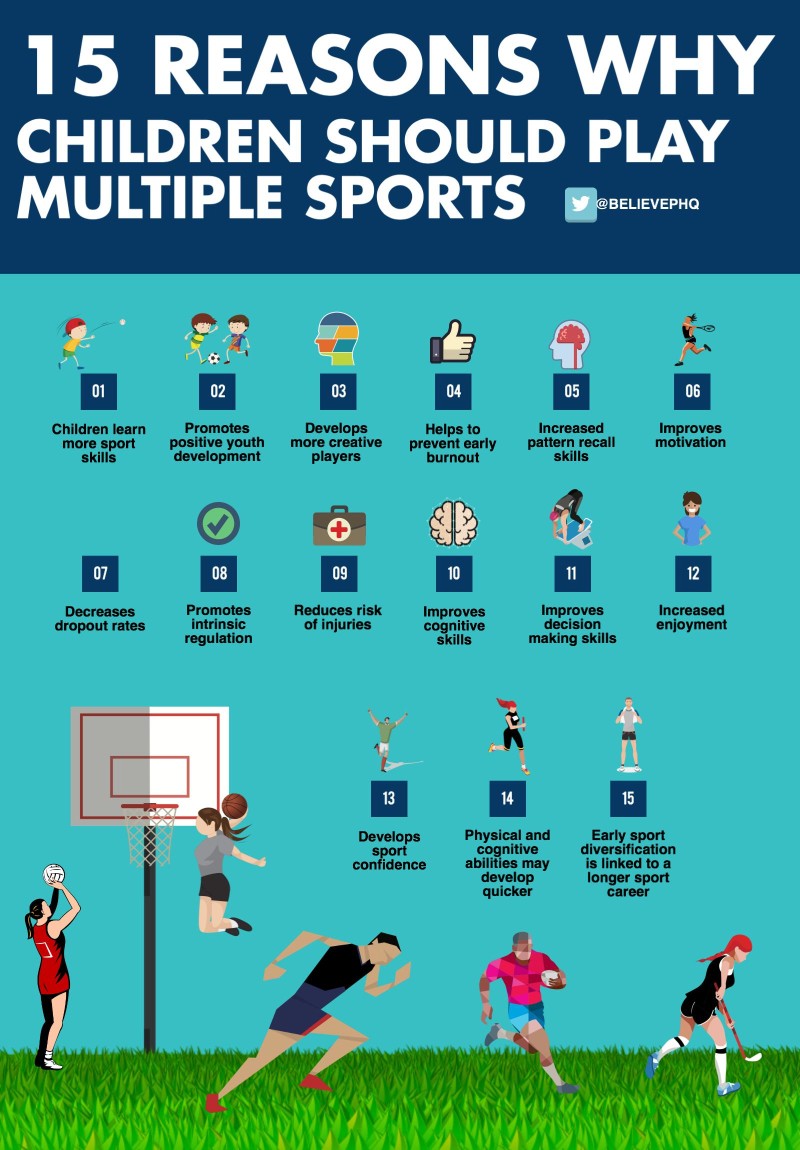More Sport Participation Is Just Better: Why Kids Need an Off-Season.
Jackie Robinson was a four sport athlete at UCLA before an iconic and trailblazing career in professional baseball. Lisa Leslie was a volleyball player and track runner leading up to a storied basketball career in the WNBA. Tom Brady and Troy Aikman were both drafted by major league baseball teams before going on to the NFL. At the highest level of professional athletics stories like this are much more common than you think; multi-sport athletes still exist, and they exist at the highest level.
As the pressure of sport specialization increases, many young athletes are saying goodbye to the off-season permanently. Families feel that pressure to keep up, and as a result are subjecting their kids to intense, year round training in one specific sport or area of development. It is crucial that this conundrum is analyzed in the name of a young athlete’s mental and intellectual wellness, as well as their growth athletically. Year round dedication too early in youth will be harmful to all three areas of their welfare.
So, take a moment to step back and consider the end game.
Are you hoping that by devoting full time to one sport will lead to a full ride scholarship at the next level? If that’s the case you may want to sit down for this: only about 2% of high school athletes receive any form of a college scholarship based on their athletic ability, and there is never a guarantee.
Can we change that end game? Shouldn’t parents want their young player to love what they’re doing, learn more, and avoid things like burnout and overuse injury? The list of benefits is long while the risks leave a lot on the line cognitively and physically.
At the end of the day, parents want what is best for their children. Involvement in various sports and activities will teach them more about discipline, roles, adversity, accountability and teamwork, while allowing their young bodies to rest and recover. Not to mention, it will be much easier on your pocket book (don’t pay for a college education on a relentless quest for your kid to earn a scholarship).
So to the aspiring young athlete and their family, we implore you to let them explore. Not because your child is the next Tom Brady, but because they are a kid.


Infographics used with permission of the BelievePerform Shop.




About The Author
BelievePerform Shop
In today’s sport, the performance of an elite athlete requires great physical, technical and tactical qualities, though at the top level, these are not enough. Performance psychology is now playing a much larger role in sport and many clubs and teams in over 70 countries across the planet are now recruiting top psychologists to help improve performance.